News & Announcements
IIRP Lecturer Elizabeth Smull, who presented on restorative practice at the International Bullying Prevention Association's annual conference, says she left feeling excited about how people from around the world are beginning to speak a common language about creating safety and community in schools.
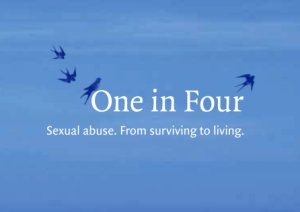 One in Four, a Dublin, Ireland-based organization that works to support adult victims of childhood sexual abuse, as well as sexual offenders and their respective families, aspires to make the world a place where all children are safe from sexual violence. Sadly, though, research shows that currently one-in-four people in Ireland experience sexual violence at some time during their lives.
One in Four, a Dublin, Ireland-based organization that works to support adult victims of childhood sexual abuse, as well as sexual offenders and their respective families, aspires to make the world a place where all children are safe from sexual violence. Sadly, though, research shows that currently one-in-four people in Ireland experience sexual violence at some time during their lives.
The organization, which since 2002 has offered advocacy and psychotherapeutic services to survivors of sexual violence, has, since 2012, sought professional development from IIRP Europe so it can offer restorative services for clients and provide a new level of support and structure for staff.
Schools
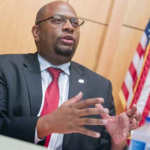 NEA Executive Committee member Kevin GilbertNews from the two largest U.S. teachers’ unions: The National Education Association seeks to shut down the school-to-prison pipeline, while American Educator, the journal of the American Federation of Teachers, recommends restorative practices.
NEA Executive Committee member Kevin GilbertNews from the two largest U.S. teachers’ unions: The National Education Association seeks to shut down the school-to-prison pipeline, while American Educator, the journal of the American Federation of Teachers, recommends restorative practices.
A new publication, Bullying, Teen Aggression & Social Media, launches this month and will include pieces relevant to restorative practices. Subscriptions are now available; the editors also seek contributions on the topic of bullying and social media.
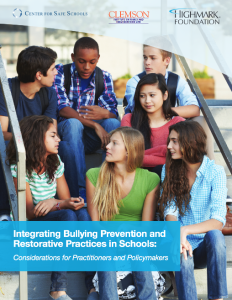 Teachers, parents, students, administrators and the public agree that bullying is a serious problem, both within and outside the school community. Organizations like Olweus Bullying Prevention Program (OBPP) have been working for decades to address this issue.
Teachers, parents, students, administrators and the public agree that bullying is a serious problem, both within and outside the school community. Organizations like Olweus Bullying Prevention Program (OBPP) have been working for decades to address this issue.
Working in parallel, approaches like restorative practices, bullying prevention, Positive Behavioral Interventions and Supports (PBIS), social and emotional learning (SEL) and various school climate initiatives address the need for safer and healthier school environments as a prerequisite for quality learning.
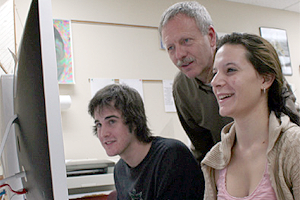 Giving students voice and choice is essential to creating engaged learners. It’s vital that teachers value students’ life experiences and incorporate them into the learning process, enabling them to internalize what is being taught. Additionally, in a restorative classroom, learning is a shared responsibility between the students and the teacher — a natural extension of CSF Buxmont’s restorative culture.
Giving students voice and choice is essential to creating engaged learners. It’s vital that teachers value students’ life experiences and incorporate them into the learning process, enabling them to internalize what is being taught. Additionally, in a restorative classroom, learning is a shared responsibility between the students and the teacher — a natural extension of CSF Buxmont’s restorative culture.
“We have high expectations for students. We put them in the driver’s seat to take responsibility for their education, engaging them and having them be a part of the process,” explains Pam Thompson, Assistant Director of School/Day Treatment.
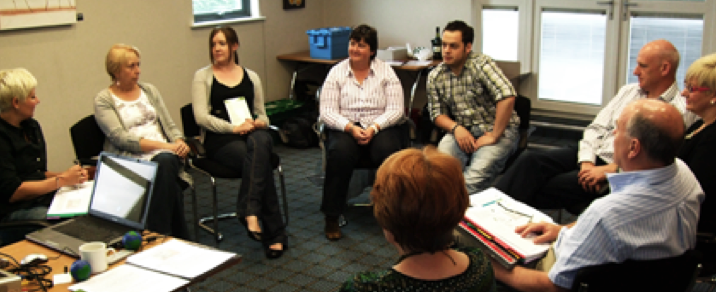 Efforts by IIRP Canada and its partners have exciting implications for the application of restorative practices in the workplace.
Efforts by IIRP Canada and its partners have exciting implications for the application of restorative practices in the workplace.
Bruce Schenk, director of IIRP Canada, recently worked with the Department of Community Services of Nova Scotia to support its goal of “becoming a restorative organization” and enhancing employee relationships.
Community
For the city of Chicago, writes Robert Kohler, "The vision is a city interlaced with restorative justice hubs — community centers that bring hope and promise to troubled kids in a town where too many of them are dying."
Brattleboro Community Justice Center has a tradition of holding talking circles for the community during International Restorative Justice Week every year. This year, in light of a local heroin epidemic, the topic was the impact of drug abuse.
The Restorative Justice Project of the Midcoast (Maine), a partner in the RAND study examining restorative practices whole-school change implementation in 16 Maine Schools, celebrates 10 years of working with schools, youth and adults.
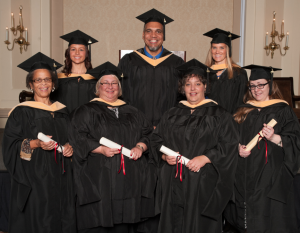 The International Institute for Restorative Practices' 2014 Graduating Class The IIRP Graduate School Class of 2014 is taking what they’ve learned out into the world and making it a better place.
The International Institute for Restorative Practices' 2014 Graduating Class The IIRP Graduate School Class of 2014 is taking what they’ve learned out into the world and making it a better place.
At the Seventh Commencement of the International Institute for Restorative Practices Graduate School, on October 26, 2014, seven new recipients of the Master of Science in Restorative Practices were excited to share how their IIRP education has transformed their work with students, children and youth, and in their communities.
The graduates received their degrees from IIRP President and Founder Ted Wachtel, in a traditional ceremony. Then, instead of a commencement speaker, in what has become an IIRP Graduate School tradition, the graduates modeled an essential principle of restorative practices: giving everyone a voice. They all shared their experience of IIRP education and their passion for restorative practices, in a “talking circle.”
Papers, slides and handouts from many of the breakout sessions held during the IIRP's 17th World Conference, held in Bethlehem, Pennsylvania, USA, October 27 - 29, 2014, have now been posted on the International Institute for Restorative Practices' web site.
You may also watch the complete plenary sessions from the conference below.

The 17th IIRP World Conference
October 27-29, 2014 | Bethlehem, Pennsylvania
Pre/post-conference Oct. 25-26 & Oct. 30-31
